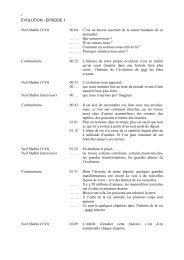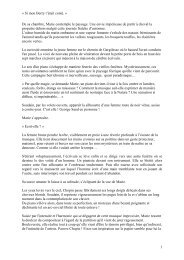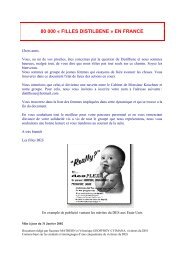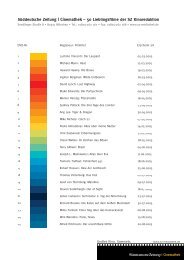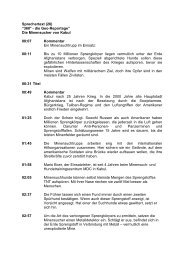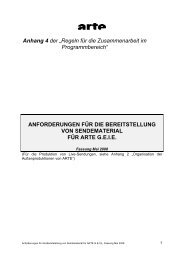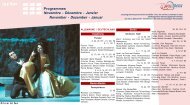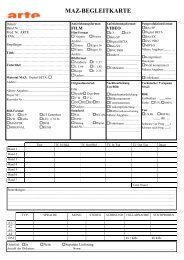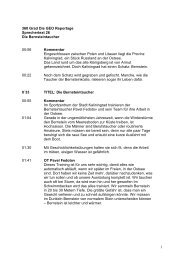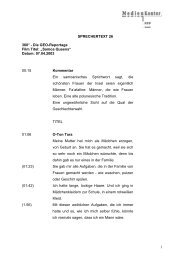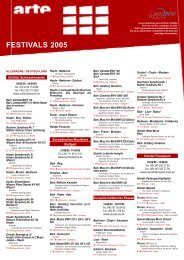POPs IN AFRICA HAZARDOUS WASTE TRADE 1980 - 2000 ... - Arte
POPs IN AFRICA HAZARDOUS WASTE TRADE 1980 - 2000 ... - Arte
POPs IN AFRICA HAZARDOUS WASTE TRADE 1980 - 2000 ... - Arte
You also want an ePaper? Increase the reach of your titles
YUMPU automatically turns print PDFs into web optimized ePapers that Google loves.
Status: Actual, Returned<br />
On February 4, 1988, the Bark, a vessel owned by Bulkhandling<br />
Inc. of Norway, quietly left U.S. territorial waters carrying a load<br />
of 15,000 tons of toxic incinerator ash from the city of<br />
Philadelphia’s garbage burners. The Bark intended to dump its<br />
load of ash in Haiti, but the firm decided that Haiti would likely<br />
refuse to accept the wastes when the vessel arrived.<br />
Bulkhandling’s managers subsequently changed the vessel’s<br />
destination to Guinea.<br />
Bulkhandling, Inc., arranged a deal with a local Guinean firm,<br />
Alco Guinee, to import the waste as “raw materials for bricks.”<br />
In late February and early March, the wastes were unloaded onto<br />
Kassa Island, near the capital city of Conakry. The few bricks<br />
that were produced from the ash were unusable. After<br />
Greenpeace informed the Guinean ambassador to the U.S. that<br />
the vessel was carrying toxic waste, not construction material, the<br />
Guinean government ordered an investigation into the ash<br />
dumping incident.<br />
In April, the Guinean government ordered immediate removal of<br />
the ash. But Bulkhandling balked at the order, claiming that it no<br />
longer owned the ash. In response to Bulkhandling’s delays, an<br />
honorary Norwegian Consul General and agent of Bulkhandling,<br />
Sigmund Stromme, was arrested by Guinean law enforcement<br />
officials in June. A June 11 Radio Conakry (Guinea) broadcast<br />
labeled him as “the brain behind this affair.”<br />
On June 15, Radio Conakry (Guinea) reported that “all those<br />
involved in this case will be arrested.” The next day, police<br />
reported that at least 10 Guinean Ministry of Commerce officials<br />
were arrested. Two trade ministry officials had previously been<br />
arrested, in addition to Stromme.<br />
On July 2, Bulkhandling’s vessel, Banja, picked up the ash on<br />
Kassa Island and left Guinean waters. Two days later, Guinean<br />
General Lansana Conte pledged that all involved with the affair<br />
would be punished. Conte said, “We will make them regret their<br />
actions so that society will know that they are at fault. This will<br />
discourage others from doing the same thing.”<br />
The Banja returned the cargo to Philadelphia on July 22, 1988.<br />
On September 7, a Guinean court announced a verdict for five<br />
people involved in the dumping scheme. Four Guinean<br />
government officials, two of them from the trade ministry, were<br />
convicted and sentenced to four years imprisonment each.<br />
The Norwegian honorary consul, Sigmund Stromme, was found<br />
guilty of complicity and was fined US $600 and given a sixmonth<br />
suspended sentence. Stromme was a representative from<br />
the Oslo-based Klaveness Shipping Group which was also<br />
55



